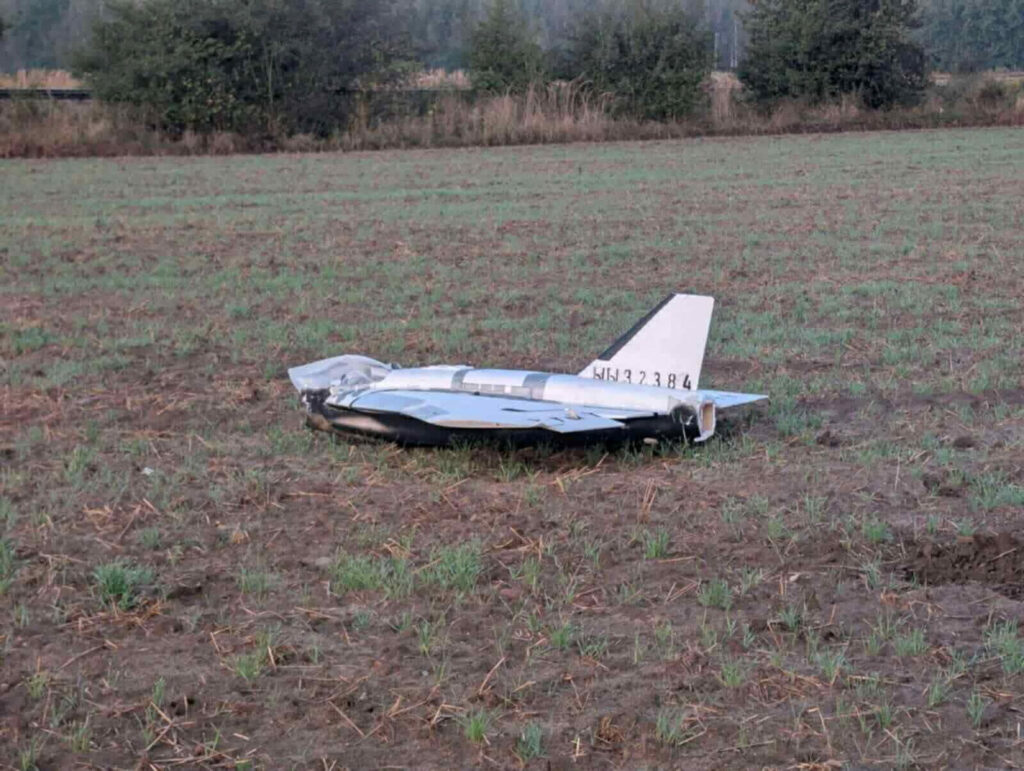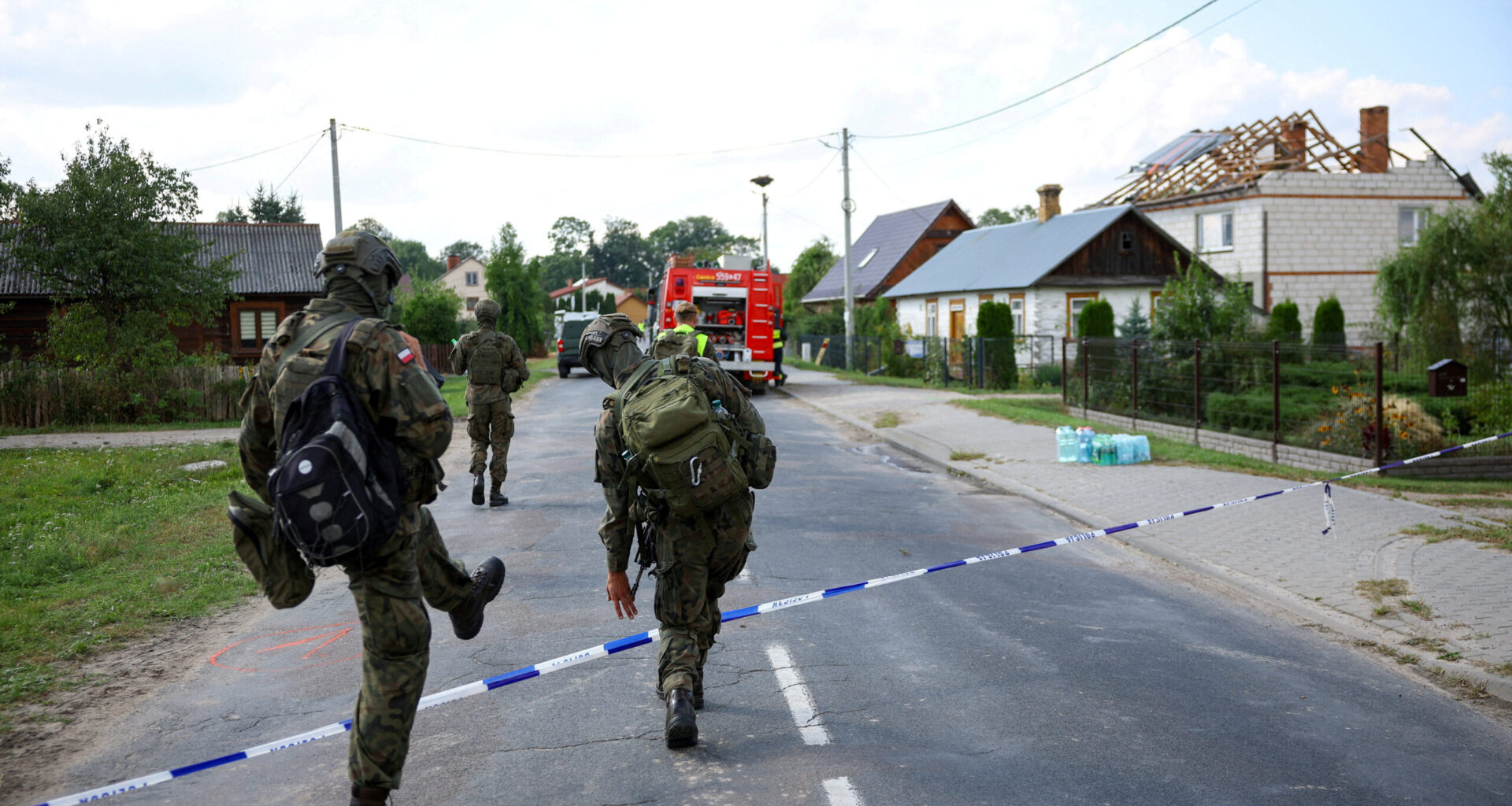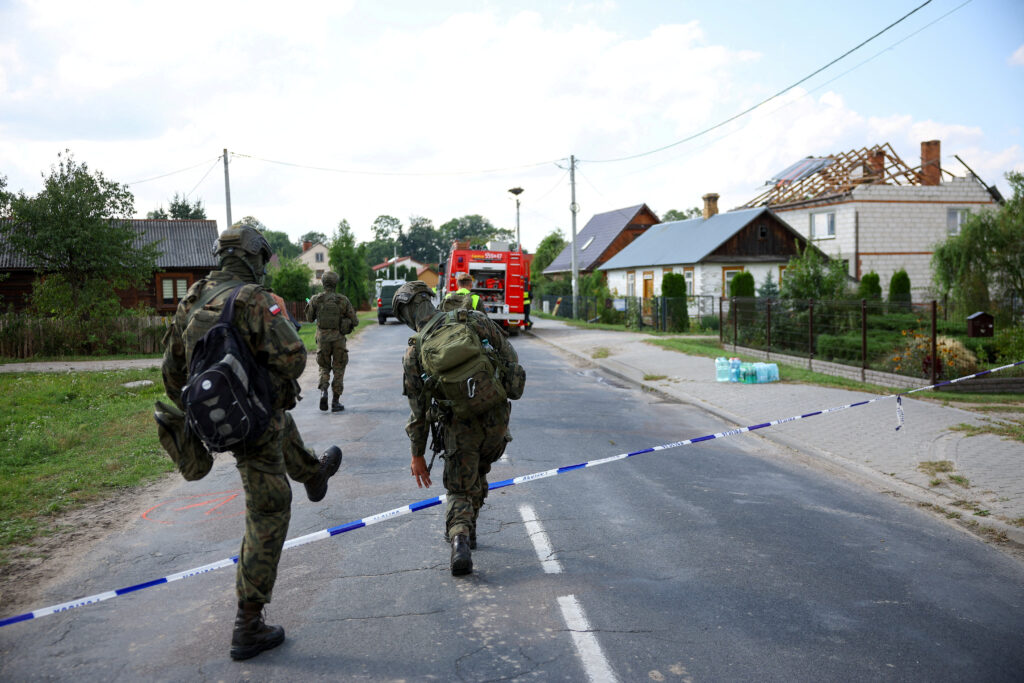Wars tend to escalate in one of two ways—by intention or by accident. In the moment, the difference is often blurry. On Wednesday, Poland shot down more than a dozen Russian drones that had entered its territory in the eastern part of the country near its border with Ukraine and Belarus. These incursions come as Russia has launched some of its largest drone and missile strikes yet in its war on Ukraine. The aircraft may have strayed from their original flight paths in Ukraine, or they may signal a new and aggressive gambit by Russian President Vladimir Putin. Wasting no time, Poland asked to activate Article 4 of the North Atlantic Treaty, which calls for consultations among allies. We activated our own call for consultation among Atlantic Council experts, who shared their insights on what happened and what to expect next.
Click to jump to an expert analysis:
Aaron Korewa: The Kremlin knew exactly what it was doing
Daniel Fried: Russia is trying to spread insecurity westward
Ian Brzezinski: Putin’s test requires a decisive NATO response
Oksana Nechyporenko: Ukrainians know firsthand the devastation Russian drones cause
The Kremlin knew exactly what it was doing
WARSAW—When nearly twenty drones are sent into the airspace of a NATO member, that’s not an accident. Representatives of the Polish government were clear that they see this as a Russian provocation. The country’s main airport in Warsaw was closed for several hours and so was Jasionka in Rzeszów, which sits near the Poland-Ukraine border and serves as the hub for most of the Western aid to Kyiv. Polish Prime Minister Donald Tusk also said that Poland will invoke NATO’s Article 4. The usually very polarized Polish political scene once again showed unity in a time of crisis. Despite being fierce political rivals, President Karol Nawrocki and Tusk praised each other for the excellent cooperation. They also stressed the need be wary of Russian disinformation. On social media, one can see attempts to claim that this was a Ukrainian “false flag” operation, but as of now, those allegations are not sticking.
Most Poles see clearly what this is about—not a declaration of war by Russia, but another attempt by the Kremlin to send a political signal that supporting Ukraine comes with a risk. Russia hopes that by doing so, it gives ammunition to the voices who advocate for a quick end to the war on Russia’s terms. Absent a firm response from NATO, it could raise doubts in Poland on what promises from allies are worth. Here, it has long been known that weakness provokes Russia—and firm resolve deters it.
—Aaron Korewa is the director of the Atlantic Council’s Warsaw Office which is part of the Europe Center.
Russia is trying to spread insecurity westward
The Russians may be seeking to intimidate NATO allies into accepting a de facto weakening of NATO security for Poland and for other NATO members, such as the Baltic states and Romania, that Russia still considers to be in its rightful zone of control. Russia wants to spread a “gray zone” of insecurity as far west as it can reach.
By threatening to extend the conflict to Poland, Russia seeks Western acquiescence to its claims to dominate Ukraine now. But giving Putin dominance of Ukraine would be a mere prelude to a westward extension of that Russian domination.
Russia may be overreaching. It is excellent news that Dutch F-35 fighter jets scrambled and other allied units engaged. Russia’s attack may have been a test of just that reaction. If Western allies act with determination, Putin may fail and, indeed, is likely to fail if the West puts forth its strength.
NATO allies and members of the Coalition of the Willing, should determine what additional forces, if any, are needed to defend NATO members. They should also consider whether forward defense—air defense in and over Ukraine, for example—is needed to address this latest Russian attack.
The West should push back and not just with words. Russia has been engaged in sabotage and assassination in Europe and against Europe. Now is not the time to try to settle things down, like those fifty years ago who tried to rescue detente with an aggressive Soviet Union, but rather to make “peace through strength” a reality.
—Daniel Fried is the Weiser Family distinguished fellow at the Atlantic Council and a former US ambassador to Poland.
 A damaged drone lies after falling in the eastern Polish village of Czosnowka on September 10, 2025. Dariusz Stefaniuk/via REUTERS
A damaged drone lies after falling in the eastern Polish village of Czosnowka on September 10, 2025. Dariusz Stefaniuk/via REUTERSThe risk of a NATO-Russia conflict will remain as long as Putin believes he can win in Ukraine
Russia’s drone incursion into Polish airspace is a massive provocation that requires NATO to issue a decisive and unified response. Russia’s attack—regardless of its intention—presents NATO with an unprecedented situation, as it marks the first time in history that the Alliance has directly engaged Russia in allied airspace.
Thus far, NATO has responded effectively both militarily and politically. Militarily, NATO employed multinational capabilities including Polish and Dutch fighters, a German Patriot air defense system, and an Italian surveillance aircraft to defend allied territory. Through its political leadership, NATO has held Article 4 consultations called for by Poland to assess the situation and discuss potential response options. Article 4 of the North Atlantic Treaty states that allies will consult whenever the territorial integrity, political independence, or security of any of the allies is threatened. Though called for rarely, NATO has held these consultations more regularly since Russia’s full-scale invasion of Ukraine.
NATO is not presently treating this as an attack that would trigger the Alliance’s Article 5 mutual defense clause. However, the United States and its NATO allies should immediately move to increase the costs on Russia for its continued aggression in Ukraine and bring Putin to the negotiating table. As we have seen over the past twenty-four hours, there remains considerable risk of a broader conflict between NATO and Russia as long as Putin believes he can emerge victorious from his war in Ukraine.
—Torrey Taussig is the director of and a senior fellow at the Transatlantic Security Initiative in the Atlantic Council’s Scowcroft Center for Strategy and Security. Previously, she was a director for European affairs on the National Security Council.
Putin’s test requires a decisive NATO response
Nineteen drones—and it may have been more—is not a mistake. It is an intentional barrage intended to provoke Poland and test the solidarity of the NATO alliance. This is not the first incursion by Russian drones on NATO territory and airspace. It is a repeated offense, one of which previously killed two innocent Polish farmers. But this time Putin leveraged mass to ensure that there is no question that Russia is challenging the will of the Western community of democracies to defend its interests and itself.
If the West doesn’t respond forcefully to this attack, Putin will have achieved a strategic double hit. He aims to create a crisis of confidence that could cripple NATO’s unity and the credibility of its deterrence posture. If successful, he will have profoundly weakened Ukraine’s security.
It is critical for the Alliance to decisively respond to deny such a success through its own double hit—one that reinforces its own deterrent posture and the defense of Ukraine. NATO allies and its partners should impose a harsh set of sanctions designed to body slam the Russian economy.
In the military realm, the United States and other leading allies should reinforce their military presence in NATO’s front-line states, including with both defensive and offensive capabilities. That coalition should extend its air defense operations into Ukrainian airspace—if only to defend NATO territory.
Efforts should be made to increase the flow of military equipment to Ukraine, including the resumption of US-funded equipment transfers. And the United States should reconstitute and exercise information operations directed toward the Russian people to undermine the Putin regime and its violent hegemonic ambitions.
Incremental responses to Putin’s aggression led him to conclude that he can demonstrate that the West lacks the will to defend itself. Decisive action is necessary to change that perception and convince Putin, a product of Soviet imperialism, that the “correlation of forces” have turned against him. Failure to do so will only lead to another escalation of Putin’s efforts to defeat not just Ukraine but also NATO.
—Ian Brzezinski is a resident senior fellow with the Scowcroft Center for Strategy and Security and former US deputy secretary of defense for Europe and NATO policy.
Ukrainians know firsthand the devastation Russian drones cause
Last night, Ukrainians could not sleep because of one of the largest drone attacks in our history. Every day, every night, brings a new record. When we learned that drones were actually flying into Poland, Ukrainians living there began asking questions. They couldn’t find any coverage in Polish media—only on Ukrainian Telegram channels. Now there are memes and jokes aimed at Poles, suggesting they should start learning Ukrainian to understand what’s really happening in their own country.
But this is no joke. Ukrainians have been saying for years that Putin is not only waging war against Ukraine, but against the West—Europe in particular. He is simply testing tactics, always using the “salami strategy”: he tries something outrageous, waits for the world’s reaction, and if there is none, he pushes further.
This latest attack targeted Rzeszów airport—the headquarters of the US base and the transport hub for everything Europe is buying from the United States for Ukraine. The choice of target was not a coincidence. It’s not just a stray drone crossing into Poland; it is Putin’s next test to see how Europe will respond. The softer the reaction, the harder the next blow will be. We Ukrainians can guarantee it—we have lived through this ourselves.
—Oksana Nechyporenko is a nonresident senior fellow with the Atlantic Council’s Eurasia Center.
Further reading
Image: Soldiers walk next to a site where a roof of a house was destroyed, after Russian drones violated Polish airspace during an attack on Ukraine, with some being shot down by Poland with the backing from its NATO allies, in Wyryki, Lublin Voivodeship, Poland, September 10, 2025. REUTERS/Kacper Pempel/File Photo

